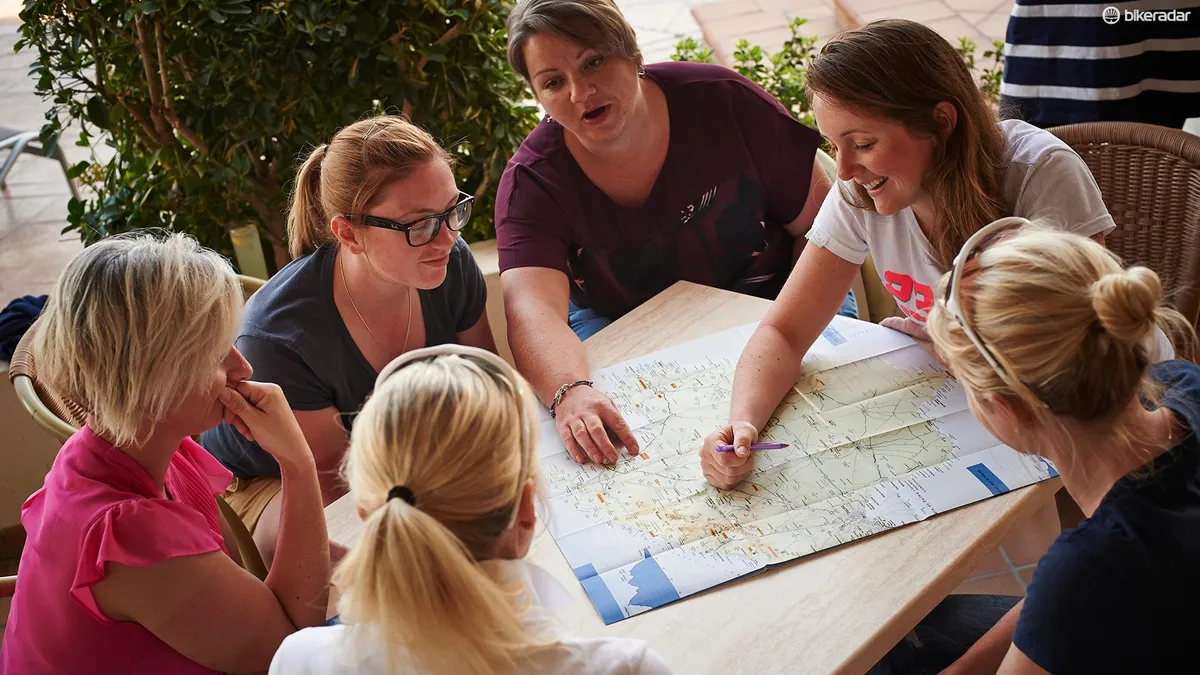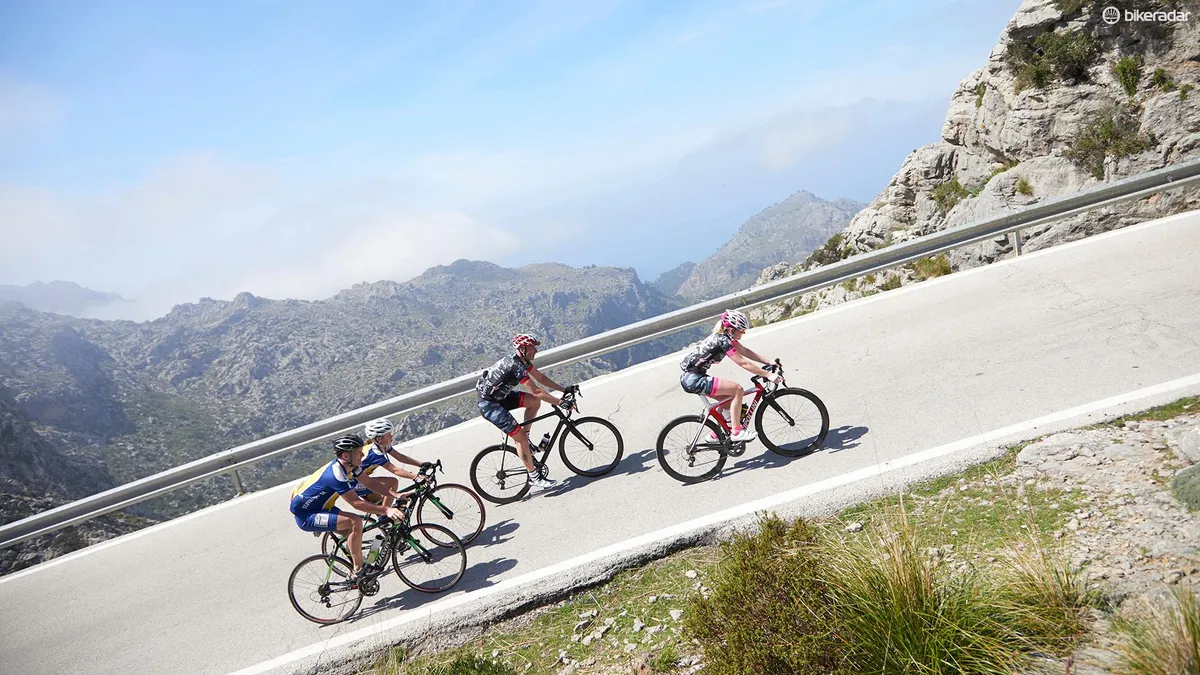With the chance to live like a pro cyclist and clock up some sunny miles, it’s no wonder so many of us are jetting away for training camps. Whatever your ambitions, cycling camps can kick start your cycling season with all your needs catered for, beautiful roads to ride on and plenty of expert advice. If you're about to join a camp, a little preparation goes a long way.
Pre-camp preparation
1. Set your goals
A little planning will start things off on the right foot. Set clear goals and match your cycling plans to your aims.
If you’re using the camp to train for hilly sportives or gran fondos then head to the mountains. Battle the offshore breeze along the coast if you’re planning to do a flat, windy road race.
2. Train for it
Hit the camp as if it’s a big training week. Have a rest three weeks out, and then gradually build up the duration or intensity of your riding over the two weeks beforehand.
Try to ride long miles on two consecutive days in your preparation, or your legs and buttocks won't know what’s hit them! (On that note; pack a lot of chamois cream.)
3. Service your bike!
Your bike is your ally, so treat it to a service before you fly out. Halfway down the epic descent of Sa Calobra in Mallorca is not the ideal place to find out your brake cables are worn!
You also don’t want to realise just before lift off that the handlebars won’t squeeze into your bike box, so check that your bike fits in plenty of time, and learn how to pack it to keep it safe and secure.

4. Be prepared for the weather
Although you might head to sunnier climes, the weather can still be unpredictable in spring. A set of gloves, arm warmers and leg warmers and a rain jacket won’t go amiss.
Another tip is to pack your essentials in your hand luggage: helmet, shoes, pedals and a set of cycling kit. That way you’ll still be able to get out riding if your checked baggage goes missing.
5. Look after yourself
You treated your bike to a service so treat your body with the same respect — both before and during camp. Avoid early or late flights as lack of sleep will wreck your immune system.
Dehydration has a similar effect, so keep taking on fluid, particularly if you are in a hotter climate. Also, when you arrive we recommend heading out for a gentle spin on your bike to get the stresses and strains of travelling out of your legs.
What to expect at cycle camp
You'll be riding every day, usually meeting in the morning to set off in small groups after an early breakfast. It’s tempting to notch up an epic ride on day one, but although you might have tales to tell that night, by day five the only tale you’ll be telling is one of regret. You’ve got plenty of time, so start conservatively and give your heart, legs and lungs time to adapt.
Set daily goals and build up the miles over the week with a rest day in the middle in which the most riding you do is a social spin. Progression lets your body adapt to the increasing demands and will result in the biggest fitness gains.

Eating and drinking
Proper nutrition and hydration play a huge part in dictating what you can achieve. You put all the effort into training, so don’t let your body down. We mainly use glycogen stored in the muscles as fuel when training, so it’s important not to let stores run low with even slight dehydration or lack of food.
You should aim to consume one bottle of energy drink or water per cycling hour and eat every 45 minutes. You might not feel hungry, but you’re taking on fuel for a whole week of activity, not just that day.
Riding essentials
Take your rain jacket, your ID and some cash out on every ride. While it’s hot at the hotel, at the top of the mountain it could be raining, and a cold wet ride is not fun.
Rest and recovery

Back at base, you should aim to consume a protein recovery bar or shake immediately, and eat a high carbohydrate meal within two hours of stopping to help your muscles repair, and to replenish those glycogen stores.
And relax! Dip your legs in a cool pool, then lie down with your feet up or have a massage. These help you recover, but most importantly they’re very enjoyable — it is a holiday after all.
Evening meals
One of the benefits of going on a cycling camp is that all your needs are catered for, including your evening meals. Throughout your stay, aim to keep your meals balanced — you are training hard and need to fuel your body.
Cyclists are prone to worrying about weight gain, but it’s vital to get enough calories in for the miles you are doing. Endurance athletes should eat around 50–60 percent of their food as carbohydrate, so head to the pasta bar! Just beware of the cheese counter, because you don’t want to go overboard with the fatty treats.
Back at home
If all goes to plan, you’ll leave the cycling camp with a large dose of motivation and a big smile. Keep grinning but bank the enthusiasm and lay off the bike for a couple of days. Your body needs time to recover.
Gradually ease back into riding, avoiding long miles or hard efforts for a week after the camp. After that, you can get on with reaping the rewards!
Article last updated 13 January 2018
